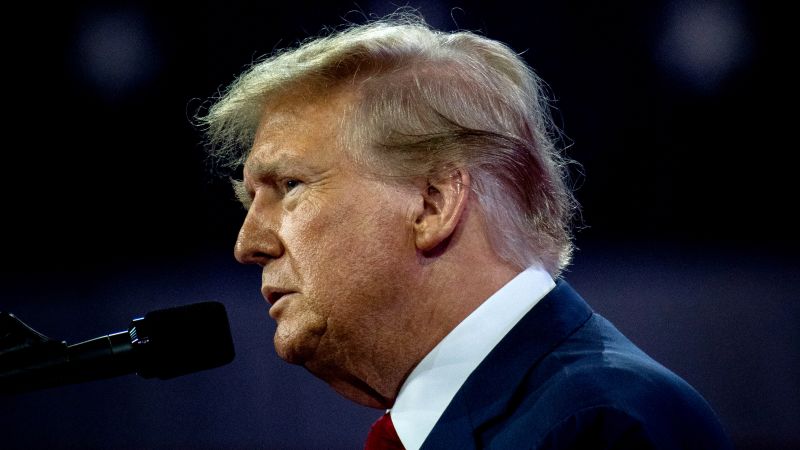South Dakota Gov. Kristi Noem praised Donald Trump for his stance on states being in charge of abortion access in America. However, she did not address Trump’s support for exceptions for rape and incest in anti-abortion laws, which contradicts the ban defended in her own state. Similarly, Sen. Tim Scott called a federal abortion ban a moral obligation for his party, but Trump’s refusal to endorse it presents a challenge for those in consideration to become his running mate, as they have built their political careers on opposing abortion.
Many potential vice presidential candidates for Trump have been staunch opponents of abortion, but Trump’s recent stance on the issue has put them in a difficult position. Trump’s refusal to back a federal abortion ban and his acceptance of exceptions that Republicans have traditionally opposed have caused tension within the party. Trump’s shift on abortion, choosing to maintain the post-Roe v. Wade status quo, is seen as a strategic move as Democrats ramp up efforts to criticize Republicans for the loss of federal abortion protections.
In Trump’s search for a running mate, he is paying close attention to how candidates have approached abortion in the past, particularly their stance on exceptions for rape, incest, and the health of the mother. While some candidates like Noem and Florida Rep. Byron Donalds have shown strong anti-abortion stances, others like Ohio Sen. J.D. Vance have acknowledged the need for exceptions. Trump has indicated that he would prefer a candidate who supports exceptions, signaling a shift in the party’s approach to abortion.
Sen. Marco Rubio, another potential running mate, has supported a ban on abortion but has also recognized the need for exceptions in legislation. Rubio emphasized the importance of supporting laws that have a realistic chance of passing, acknowledging that the fight against abortion may need to happen at the state level. Trump’s criticism of Sen. Lindsey Graham’s nationwide abortion ban proposal underscores his preference for leaving abortion regulations to the states, where he believes the issue belongs.
The Arizona Supreme Court’s recent ruling upholding a 160-year-old law restricting abortion to cases necessary to save a woman’s life highlights the potential impact of Trump’s approach on abortion policy. The ruling has already affected the state’s Senate race, with candidate Kari Lake, previously in support of the law, opposing the decision. Trump’s statements on abortion have drawn criticism from anti-abortion leaders like Marjorie Dannenfelser, but some, like Rep. Elise Stefanik, have sided with Trump as the issue becomes a focal point for state, local, and federal policymakers.
In conclusion, Trump’s evolving stance on abortion has created challenges for potential vice presidential candidates who have long opposed the procedure. His decision to support post-Roe v. Wade status quo and leave abortion laws to the states is seen as a strategic move as the issue becomes a key point of contention in the upcoming election. Trump’s emphasis on candidates’ positions on exceptions for rape, incest, and the health of the mother signals a shift in the Republican Party’s approach to abortion, with some candidates recognizing the need for pragmatic solutions to win elections. Ultimately, the issue of abortion will likely be decided by voters across America, as the debate continues to shape the political landscape.


